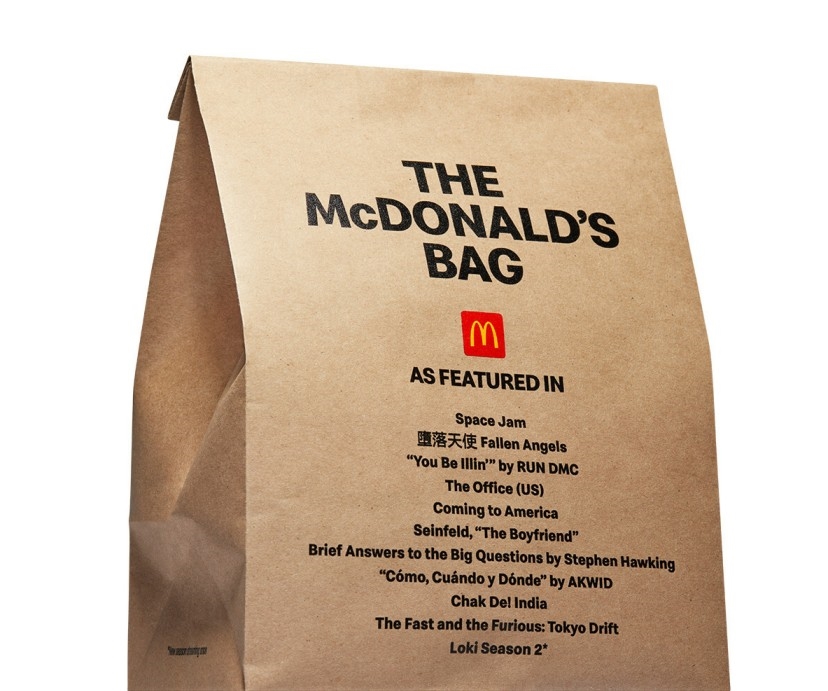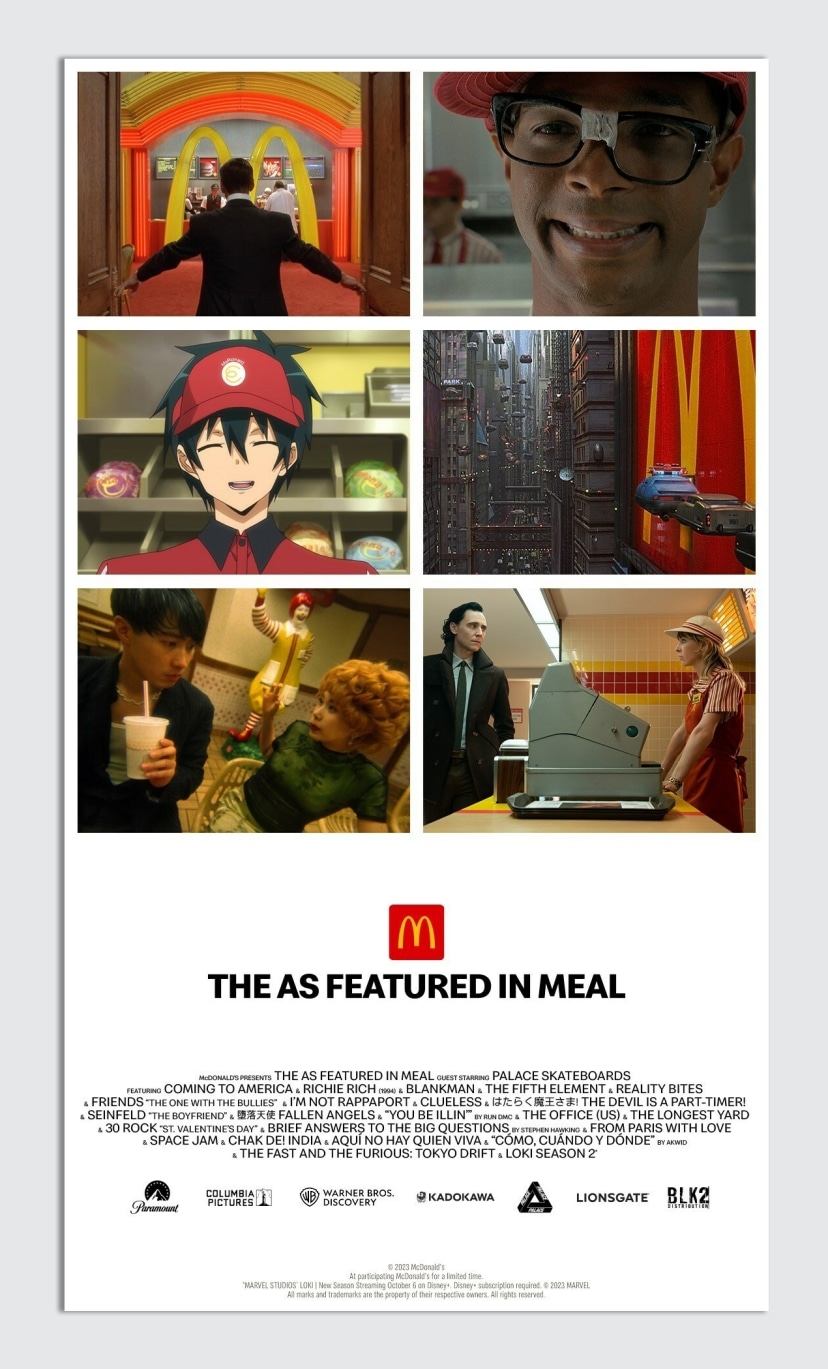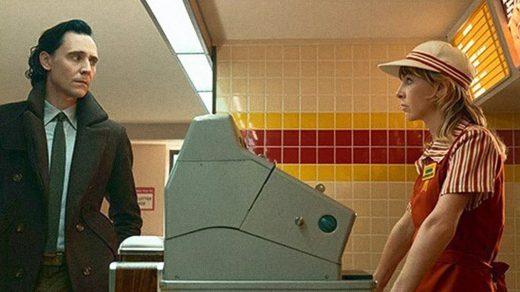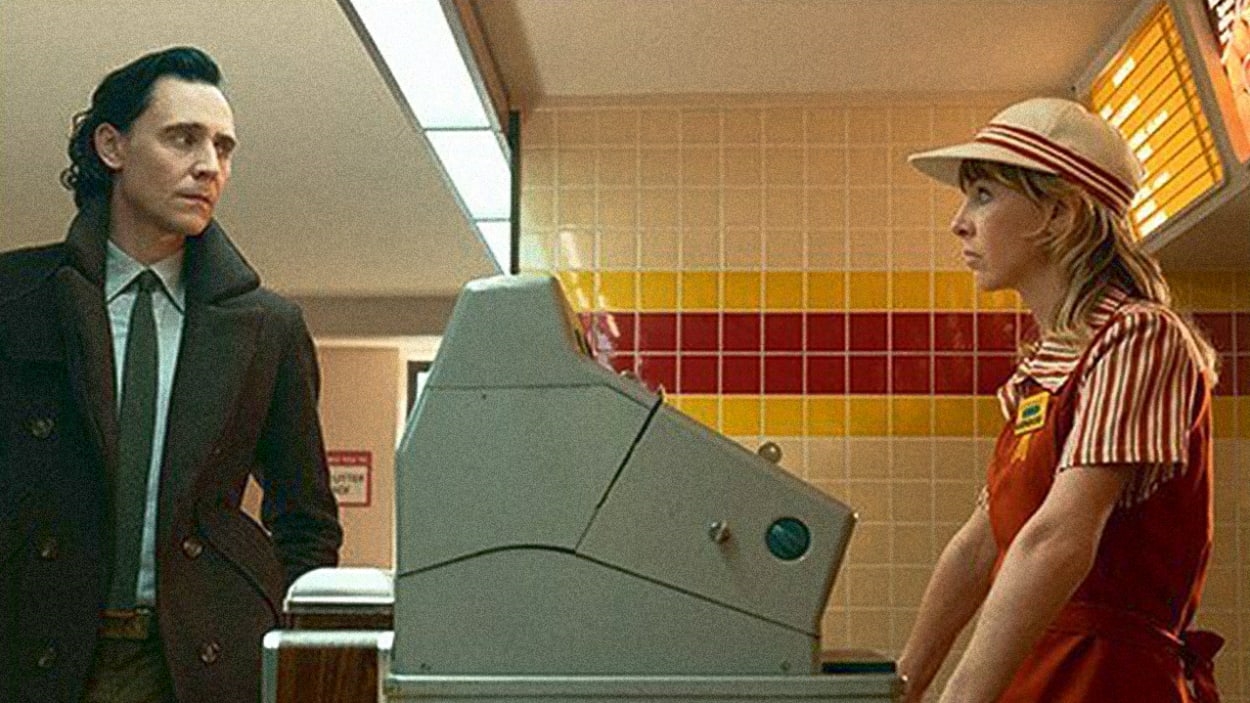How Marvel officially added McDonalds to the MCU
On the very last day of filming on the first season of the Marvel Disney+ TV series Loki, executive producer Kevin Wright sat on the steps of The Citadel at the End of Time with costar Sophia Di Martino (Sylvie), and they started to chat about what might be next for her character. Not in any official script capacity, just as fans of the story they’d just finished filming.
“This character had been on a decades-long, maybe centuries-long revenge mission, and the classic trope of those stories is that it’s all-consuming and she’s not thinking about what comes next,” says Wright. “Now she has this moment of opportunity, where is she going to go?”
Di Martino thought about it for a moment, and said, “She’d probably be pretty hungry.”
There are more than 13,000 McDonald’s across the United States right here in 2023, and untold more across the multiverse. In a new campaign launched this week, the fast-feeder gave Marvel and Loki fans a peek at its own cameo in the series’ upcoming second season, set to launch on October 6.
“As Featured In” is the Golden Arches latest Famous Orders meal campaign and, instead of being tied to a particular artist or character, it celebrates all the instances in TV and movies that McDonald’s has appeared or been mentioned by characters: Friends, The Office, Seinfeld, Space Jam, Coming to America, and many, many more. But at the center of the campaign is Loki, one that hasn’t even happened yet, which is probably appropriate for a show that revolves around the multiverse and many different timelines.
The meal itself—a choice of a 10-piece Chicken McNuggets, Quarter Pounder with Cheese, or Big Mac, with medium fries, a Loki-branded Sweet ‘N’ Sour Sauce, and a medium soda—is, like the Famous Meals before it, nothing all that special, but that has always been the point. The genius of Famous Orders is that it drives customers to McDonald’s core menu items rather than a limited-time stunt. There is, of course, also a merch collaboration, this time with streetwear darling Palace Skateboards. The packaging features QR codes that customers can scan to get fun Loki content and buy pieces from the Palace collaboration.
Long after his conversation with Di Martino on the Citadel set steps, Wright and his team were developing season two, and they were finding it difficult to pick up a new Sylvie storyline. She had just killed He Who Remains in season one, where does she go?
“When we stayed in the view of character, this woman who went on the run as a child, had been running through time, a fugitive of time, living in apocalypses, never being able to relax or slow down, the novelty of walking into a 1980s McDonald’s looked appealing,” say Wright. “You play a Little League game and go to McDonald’s. You go to a kid’s birthday party at McDonald’s. Someone like Sylvie would never have experienced that, and would be really taken by that.”
Marvel Studios has been a brand partnerships factory since Iron Man first ate a Whopper in 2008. Typically these things happen when there is a finished script, and producers go through it with the studio’s brand partnerships team to see where opportunities may be. A car chase, you say? What brand of car should we use? Maybe an Audi?
But this latest collaboration happened in reverse. A 1982 McDonald’s was specifically written into the script, so Wright approached Marvel’s partnerships people to talk to the brand about helping them out with the details. “I was worried that McDonald’s would think we wanted to do something ironic or make fun of them,” says Wright. “But we were selling an earnest story, a love letter to nostalgia through a character’s eyes who will see all of the novelty and joy of it.”
He needn’t have worried. “When I pitched it, our internal team said, ‘Uh, you realize we have a partnership with McDonald’s already, right? The fact we’re going to them wanting to do something makes it even better.”
Around that same time mid-last year, McDonald’s marketing execs were on a tour of sorts, meeting with content creators and creative teams at studios like Disney about the brand’s interest in participating in cultural moments beyond the typical product tie-in. That’s when the call from Marvel about Loki came in.
“We tend to embrace things like this,” says McDonald’s global chief marketing officer Morgan Flatley, “which we feel can be an opportunity for us to learn, especially because we felt that between Marvel and Loki, there was a real willingness to take their rabid fandom and mix it with a fan truth around McDonald’s and bring them together.”
The fan truth Flatley refers to is of McDonald’s as a congenial gathering place, a common experience for so many people. “Sylvie’s storyline perfectly aligned with how we think about our brand in terms of providing comfort and familiarity,” says Flatley. Familiarity is the key to the emotion of nostalgia and shelter that Wright was aiming for in the story.
That same familiarity is indicative of a brand so ubiquitous, it’s become a cultural touchpoint. Hence all the McDonald’s references in TV and movies. There’s a reason McDowell’s works as such a big bit in the classic comedy Coming to America. We all get it.
McDonald’s cultural self-awareness has been on full display since it rolled out its first Famous Order with Travis Scott back in 2020, and then extended to BTS, Mariah Carey, and more. These collaborations marked the first time the brand truly embraced its global pop-culture status in a creative and fun way that really leaned into fan service.

Flatley says that while “As Featured In” has a laundry list of movie and TV appearances, the idea itself came out of the collaboration with Marvel. “Loki got us thinking about how our brand actually has all these moments across pop culture, and then looking at the reason why,” says Flatley. “It’s a really powerful shorthand for people coming together, for shared moments in our restaurants or over our food. McDonald’s has appeared over all this work globally because of that shorthand and the iconic nature of the brand.”

That all sounds great, but many brands get nervous or overprotective when they aren’t in full control of the creative. Not that long ago, McDonald’s was among them. The success of Famous Orders, allowing artists and partners like Cactus Plant Flea Market to play with its brand logos and characters, and the passionate response from fans—along with the sold-out merch and boosted sales—has given Flatley and the brand more confidence than ever in what she calls “sharing the pen.”
“I’ve become a big believer that if we lean into the right kind of creators in the right cultural phenomenon, and loosen some of our control on the brand, magic will happen,” says Flatley. “A few years ago, I don’t know that we would have felt as comfortable handing over key aspects of our brand to be part of a storyline like this, but today we’re really aware of the authenticity of our brand and the role that it can play.”
Wright is very familiar with the pitfalls of ill-conceived brand partnerships, and the impact they can have. “Wayne’s World was making fun of this stuff 30 years ago,” says Wright. “When it’s done poorly, it looks like business not driven by story. I don’t think that was ever a concern for us, mainly because we knew it was being driven by our story, and the more McDonald’s partnered with us, the better we were able to service the story.”
Multiversal marketing? Let’s see McDowell’s try that.
(8)



